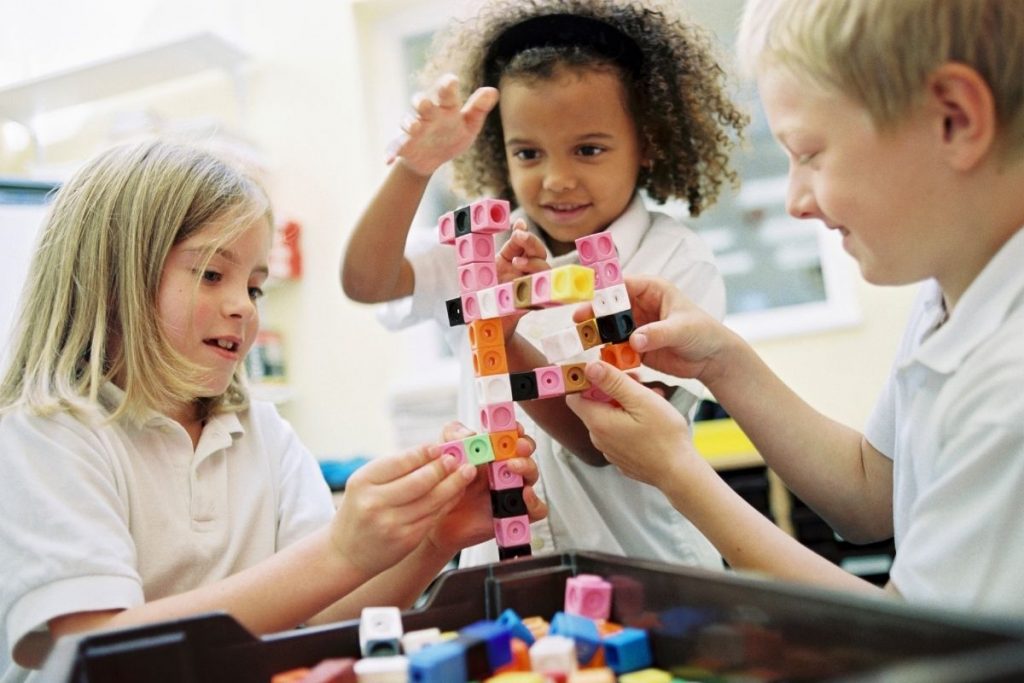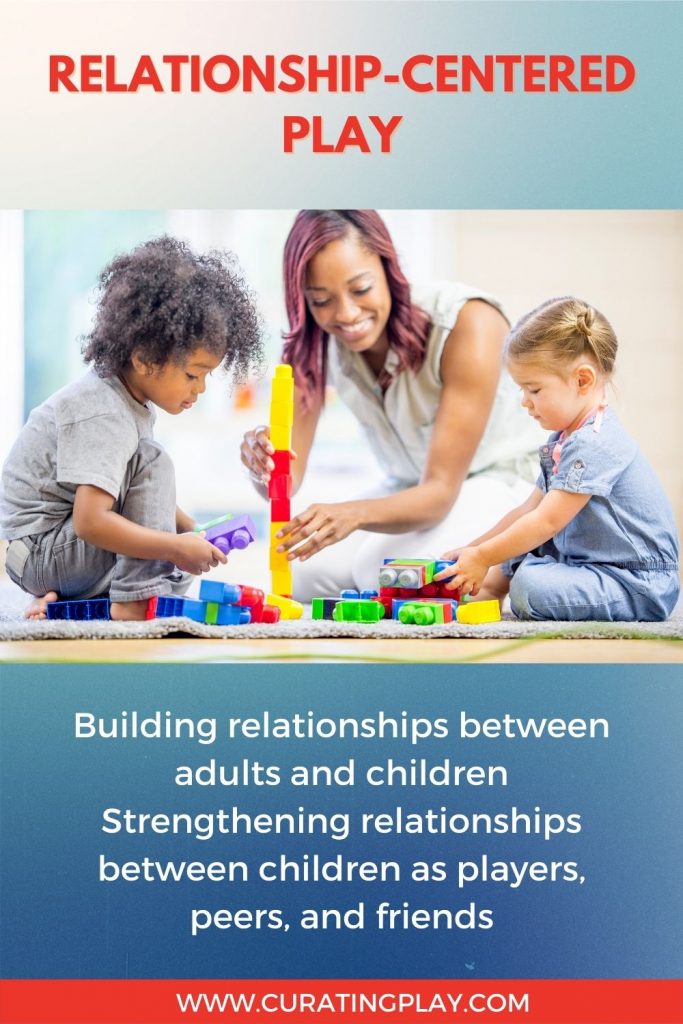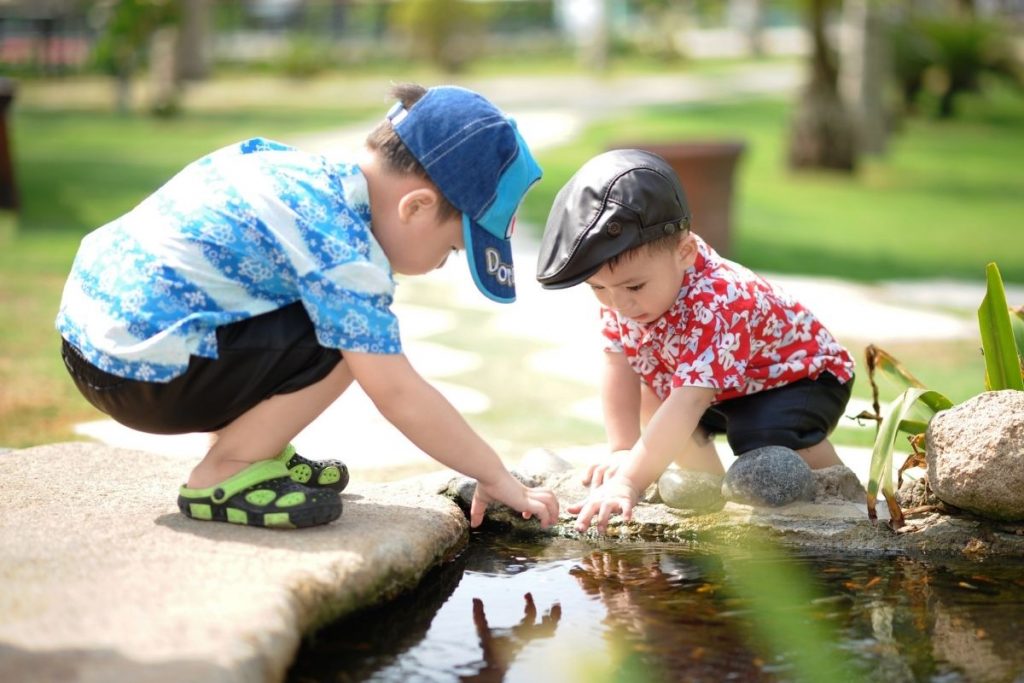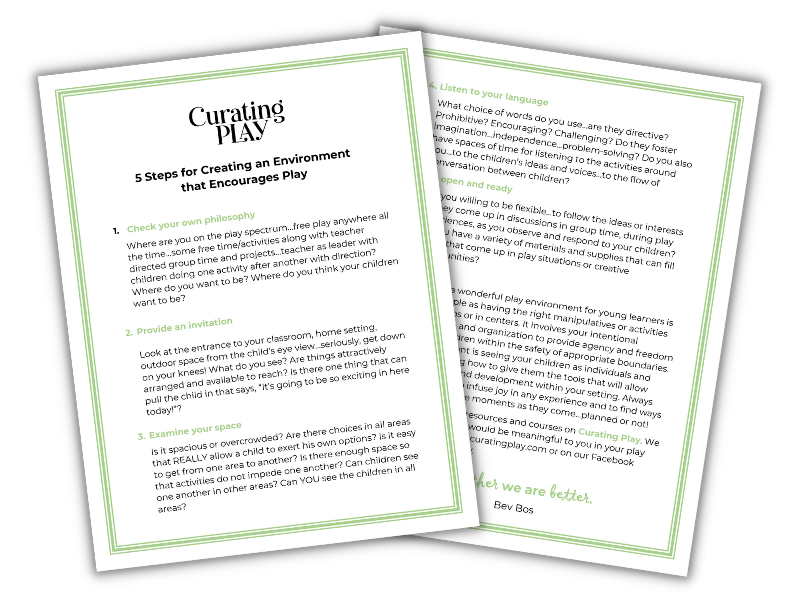The role of play in the lives of young children is shown to be the most beneficial and creditable strategy in regard to their learning. While in many instances, play has been stripped from early learning environments, there are a wide variety of settings that show play as a developmental opportunity for children to learn social skills and negotiation processes as well as important cognitive skills.

Creating the foundation for a child’s relational abilities is a critical task; designing elements that foster those abilities can be accomplished through play-based scenarios. The essential work of preparing teachers to address the social-emotional and relational needs of their students goes beyond the standard curriculum blueprint and must include not only child-child interactions and relationships but teacher-child relationships as well. Play as a strategy is not simply a child undertaking; adults in the environment must also be willing to take on appropriate roles.

So, how does an adult interact during play? It is important that roles and boundaries are child-initiated and that adults remain quiet observers unless invited into the scenario. Most children are happy to have an adult just sitting quietly near by and may not require any input; some children do need either validation or emotional support in their peer interactions so a nearby and observant teacher can be a social mentor in some instances. And, of course, there are some children who are quite secure in their own role and in their personality…they feel very comfortable giving the teacher lines to say or actions to contribute to the situation!
The key to any successful play setting is to build on the relationships already existing.
Know your children well and be ready to support when necessary (and perhaps requested) or to step back and allow a conflict of opinions or ideas to naturally resolve.
- Determine what children might benefit from seeing a strong play partner and being “directed”.
- Understand which ones could benefit from a leadership role and set up props or processes to make that a possibility.
- Listen always to hear the thoughts as they develop and to have something to chat with children about in a smaller setting after the play.
- Be present to take on whatever role is required or to provide the support needed to foster extended play scenarios.
Building relationships between adults and children is an important and on-going teacher responsibility. Strengthening relationships between children as players, as peers and as friends is one as well. These charges are not written in curriculum books and are not often discussed in college classrooms or training events. Being human is the foundation for the skills that adults have and the ones that they model, mentor and teach for the young children around them.
Preparing a physical environment to encourage developing relationships and creating the social and emotional atmosphere that will allow growth, understanding and empathetic progression illustrate the combination of skills that a teacher or carer must master. The role of the teacher in a relationship centered play-based environment builds strong teacher-child interactions which will foster social-emotional development and build relationship proficiency.
Make sure to pin this post for later!






